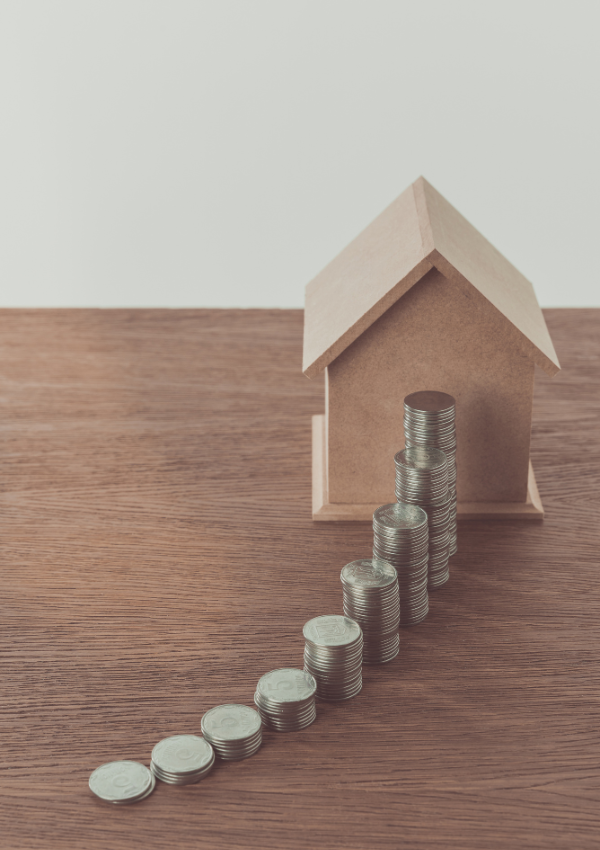This article may contain affiliate links. See our disclaimer for more information.

Are you ready to invest in real estate but you have no idea where to start? Read on for our comprehensive guidance on investing in real estate for beginners. Learn the tips and tricks we used to get started and find your own path to real estate investing!
Investing in real estate can have many benefits, but there are also many challenges. It is up to you to determine if the benefits outweigh the negatives. Real Estate investing is not for everyone. It can be stressful and challenging, but it can also be rewarding. Let’s dive in below.
Understanding Real Estate Investment
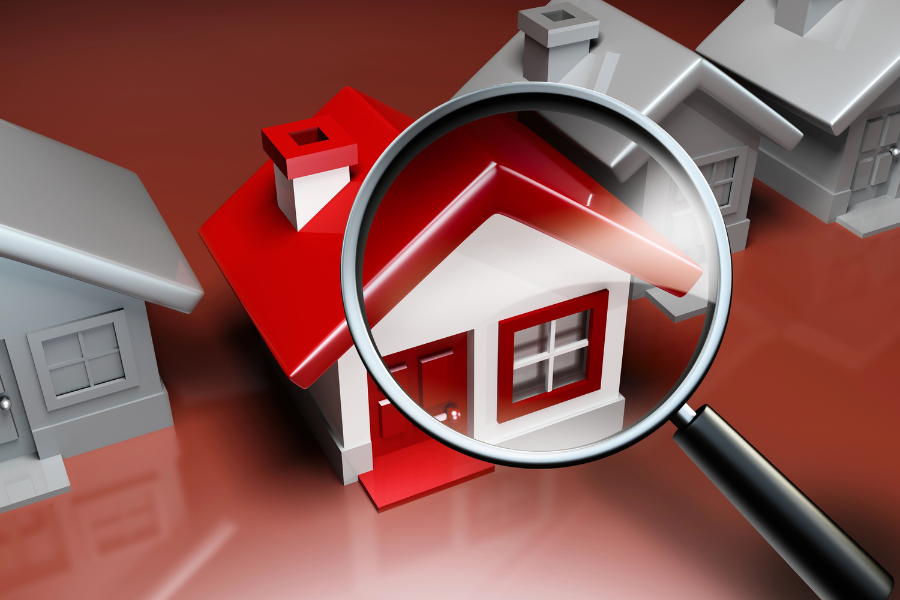
Investing in real estate can take many different forms. It is important to understand the different forms of real estate investing as well as the different strategies.
Here are different forms of real estate:
- Residential – This is any property that is used for living in. It can include single family homes, duplexes, townhomes, condos and more.
- Commercial – Commercial properties are any that are used exclusively for business purposes across a broad range of categories. These include store, gas stations, hotels, offices, restaurants and so much more.
- Industrial – Industrial properties are used for anything from research and development to manufacturing, distributions, production or storage.
- Land – This is exactly what it says. It is just land with no property available, also known as undeveloped property. Most land sales include certain rights, such as mineral and lumber. Make sure you understand what you are getting and what you are keeping. I once bought a piece of land where I got all of the rights except the oil rights. This was not an issue as there was no oil, but in theory the previous owner could have came and drilled on the land at any time.
- Special Use – This type of land is generally owned by the government. It can also include property available to the public such as parks, churches, schools, libraries, cemeteries and public land.
With this information, you can make a better decision about what type of real estate you want to invest in. Are you looking to own storage units or gas stations or simply single family homes that you rent out? Once you make that decision, you can begin to look at different investment strategies.
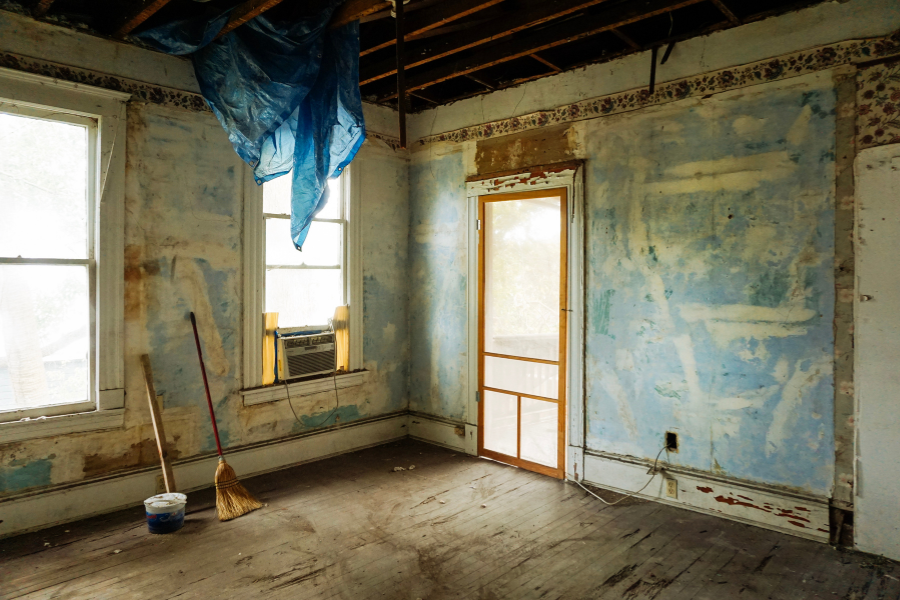
These include:
- Flipping – Made popular by television, many people want to become house flippers. But it’s not as easy as it looks. Flipping a house is when you take a house that needs work, you fix it up, and you sell it. The houses can range from everything to needing paint, to needing to be rebuilt up from the studs. The idea is to sell the house for a higher value than the purchase price and rehab put together to make a profit. You need to have an eye for rehab to flip. It is especially important to double and triple check your math, and leave plenty of room for unexpected expenses.
- Buy and Hold – This basic real estate strategy is when you simply buy a property and do not sell it. You hold the property while renting it out and letting the tenants pay the mortgage down. While these properties will need occasional work, they are meant to be bought and rented. Oftentimes buy and hold properties come with tenants.
- REIT’s – A Real Estate Investment Trust is a company you can invest in that operates, owns or finances real estate. This means you can invest without ever having to deal with any of the real estate nitty gritty managing. You receive dividends from the REIT just like with mutual funds. This is a great way to invest if you do not want to physically own or manage any properties
- House Hacking – House hacking is when you physically live in the house that you are also renting. This could mean you have a multi-family unit such as a duplex or a triplex where you live in one unit or rent out the other two. It could also mean you have a single family home and you rent out the other rooms. This is a great way to get started in real estate. Owner occupied properties can often be bought at lower interest rates, and you can live in the property for a discounted price, or even for free. This helps you save significant amounts of money. You usually have to live in the house for at least one year, and then you are free to repeat the process or move into your own place.
- Wholesaling – This is a real estate investment process where you get a property under contract from a seller, and then turn around and initiate the sale with a buyer. You never actually buy the property yourself, you are more of an intermediary between the seller and the buyer. So how do you make money? Wholesalers is great for investors willing to search for distressed properties, or owners that need to sell quick. They get the property under contract and then find a willing buyer, up-charging the sale price so they can get a finders fee, thus making money without ever actually buying a house.
- Lending – Another method for the savvy investor who doesn’t want to actually buy and manage any properties. Many investors are regularly looking for lenders. You could lend your money to these investors for reasonable terms, and have your money in the real estate market without doing the work yourself. Make sure you fully understand what you are investing in before following this method.
There are other investing strategies in addition to these. I recommend you do thorough research and stick with one strategy to start. You are less likely to make mistakes if you become and expert at just one investing method.
What Strategies I Used to Buy 3 Rental Properties:
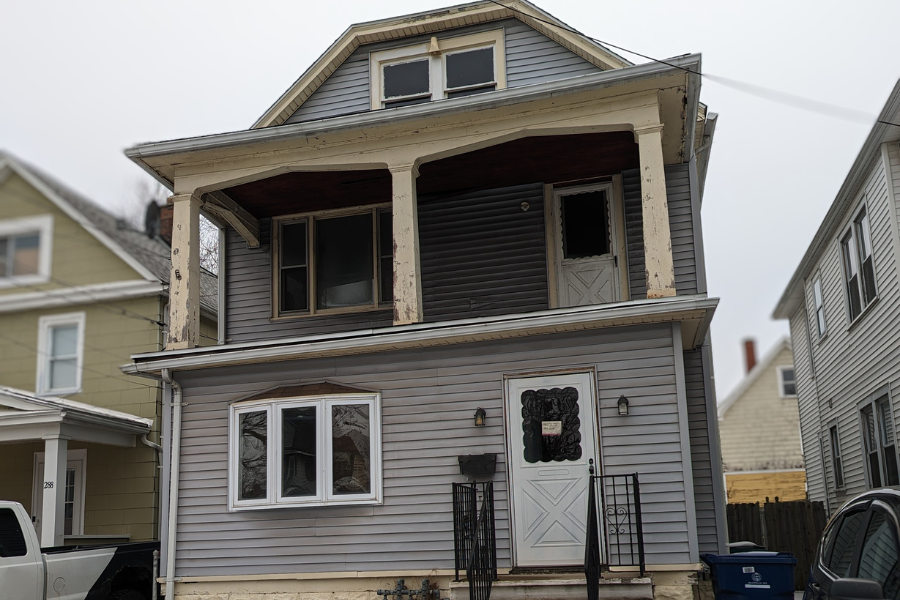
My business partner and I have used two different strategies so far to get our three rental properties. (Okay, we are still waiting to close on two of them, but in two months we will have all three!). For the first property we used what is known as the BRRRR strategy. This is known as the Buy, Rehab, Rent, Refinance, Repeat.
For a comprehensive guide, check out Bigger Pockets Guide here!
This is a basic strategy where you use cash, rather than a loan to buy a property. It was beneficial for me to have a business partner for as I did not have enough cash on my own. We bought a duplex that needed to be fixed up, and rehabbed it, again, using our own money.
Once the units were ready to go, we rented them out. After 6 months from the date of purchase, we began the refinance process with the bank. After the loan went through, we had a mortgage on the house, and got our money back. The next step would be to take that money and repeat the process.
We did not, however, repeat the process. While searching for another BRRRR type property, my business partner and I stumbled upon a very decent deal. All of the units were already in decent condition. We jumped on the opportunity and did a conventional mortgage. We used the money we had gotten back from the first property for the down payment.
Until we start to use other investor’s money to buy more houses, we were left with insufficient funds to do another BRRRR. We were able to secure another, small property, with another conventional mortgage. This brings us to a total of three properties! These last two properties are good old fashioned buy and hold properties. We took out mortgages, plan on renting them, and will hold them for years to come.
It is important to understand your own strategies and risk tolerance when deciding how to invest in real estate. Are you especially good at rehab costs and running numbers? You may want to flip properties. Are you a smooth negotiator that can make any sale? Wholesaling may be the route to go. Each way to invest in real estate has their own techniques, along with all of the pros and cons. Be sure to understand all of the risks prior to investing.
Assessing Your Financial Situation
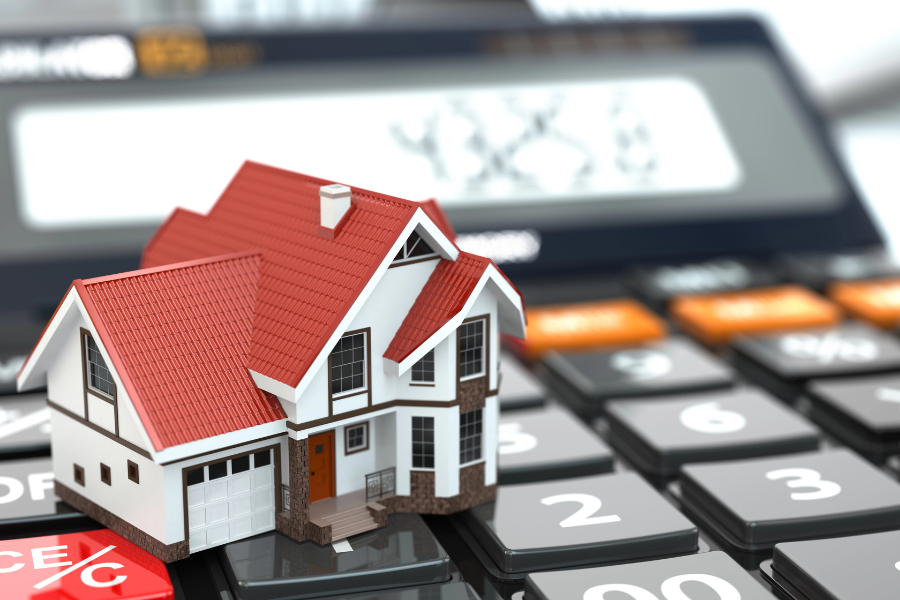
Before you do any investing, you should assess your financial situation. Make sure your personal finances are in order before thinking of any investing of your own money. If you plan on using your own money to invest, be sure to evaluate your personal finances to determine the initial amount of money you can invest.
Even if you do not plan on using your own money, you need to be prepared for the possibility that issues may arise and you may have to find a way to pay your investor their money. It is best to have a hefty safety fund in case there are any problems.
It is important to understand the financial commitments that are involved in real estate investing. In addition to down payments, mortgage payments and maintenance costs, there are many other unexpected fees. We are currently evicting our very first tenant after only receiving five months of payments. We now have to pay attorney fees, among other things, and we aren’t getting any rent. Luckily, we were smart enough to keep some funds in reserve for situations such as this.
Your emergency fund, or reserves, needs to be liquid and available. You never know when an unexpected event will occur and you will need to withdraw the funds to make up the costs.
This is why it is so important to understand your own finances before diving into the world of real estate. You should be financially sound and understand the full monetary picture before considering investing.
Researching the Real Estate Market

It is now time to start you market research. Knowing and understanding your market is essential to having a successful real estate business. In order to fully understand your real estate picture, knowing the area you are investing in is pivotal.
Here are some key factors to look for when doing market research:
- Market Demand – this is the amount of interest there is in the area you are looking to invest in. You don’t want to flip a property only to discover no one wants to buy in the area, or purchase a rental property and be unable to find renters!
- Growth Potential – Will the property values in the area go up? This is especially important if you are looking for a bit of a longer term strategy. It is important to know if they value of your properties have the potential to increase. No one wants to buy a depreciating asset.
- Property Value – What are the actually property values in the area you are investing in? Areas can vary street by street, so make sure to do a deep dive into the actual property values when you are searching. This helps you save significant money so you don’t overpay for properties.
- Rental Yields – If you are looking to rent out your properties, you need to understand what market rent is for the area. If you incorrectly calculate or understand actual rent in the area, you may find yourself losing value every month. Remember that rental yields are determined both by the area the property is in, and the condition of the property.
Understanding the Market
Understanding market trends, property values, and rental rates in your target areas is essential to operating a successful real estate business. Before committing any money to a property, be sure to do thorough research to identify potential investment opportunities, especially as a beginner.
If you’re unsure where to start, I would recommend picking a zip code. If you live nearby, start driving the area. Check out the conditions of the properties and whether they appear kept up. If you are considering commercial properties, do the same thing. Look to see if there are other successful business around or if the area is too residential or run down.
Then get on the internet and research, research, research. Most counties have GIS mapping where you can see detailed information about properties by the address. You can look up public information such as taxes, sewage fees, garbage fees and recent sales. Monitor the online rental market. Watch price trends over several months if you can, to see if a property drops their price if they may have been listed too high, or if all properties that are in the area are rented out quickly.
I recommend diving even deeper as well. If you think you have found an area you want to invest in, call the city/town for more information. They can give you any fees you may have to pay and tidbits about the area you won’t get online. Attend local town hall meetings. These are extremely valuable to learning what is going on in the area. Maybe there are approved plans to build a new park, or a new major business in the area. This can be extremely beneficial to long term rental success.
The point is, research, research, research. Even now, I am still conducting rental trends on our rental that is already rented so I know the value in case the current tenants leave. Understand your market, know your details, and if the market doesn’t look good, don’t consider your research a waste of time. Consider it as a time investment where you learned where not to invest. And then move on to the next market.
Financing Your Investment

Most of us don’t have enough money on our own, especially when we’re starting out, to fully purchase our own rental investment. I had about half of what I needed which was a huge driving factor to finding a business partner.
There are many different financing options for real estate investments, even some where you don’t need to use your own money. One of the most popular options is to get a loan. If you can save up at least enough for a down payment, this is a great way to start.
Here are some loan options:
- Conventional Mortgage – This is just a regular mortgage. You put down 20% of the purchase price and the bank gives you 80% that you pay a consistent payment each month based on the interest rate and length of the loan. Conventional mortgages can get a bit creative. For example, my loan for my primary residence required 0% down because it was part of a first time homebuyer program. Some rental loans may require 25% down, or less if you will be living in the property. There are different loan lengths, the most common being 15,20 and 30. Some banks also offer a balloon payment where you pay a lower monthly fee but owe a large amount at the end of the loan. There are also ARM loans where you have a fixed rate for a set amount of years, usually 5, 7, or 10, and then the rate changes based on the market. There are so many options, and if you are looking for creative financing, make sure you call your banks to talk about their available options.
- FHA Loan – An FHA loan is a Federal Housing Administration loan. This means the loan is insured by the government and issued by a bank or other approved lender. These usually require a lower minimum down payment and applicants may have a lower credit sore than usually required. FHA loans are not common with rental properties, but there is currently a multifamily home loan option if you are going to live in the property. Again, make sure to talk to your bank to understand the loan options available to you.
- Hard Money Loan – This type of loan is received through a private money lender a company, rather than the bank, with the property you are buying as collateral. Basically, just as with a conventional loan, if you default, they can take the property. While hard money loans can vary significantly in terms and conditions, many hard money loans from professional companies mimic bank loans. Hard money loans are great because there are limits to how much the bank will let you borrow, so they can be a great alternative option to getting more funding if you can’t get a loan at the bank.
- Construction Loan – A construction loan is lending, usually from a bank, that covers the construction costs of building a property. These are usually a short-term financial product and can cover a wide range or costs related to the property. Some banks also offer a construction loan product that covers rehab costs to an already existing property. This can be a great option if you have the money to purchase a property but fall short on the rehab costs.
- Seller Financing – This is when you secure financing from the seller of the property. Basically, the seller holds the loan, rather than a bank or other lender. Seller financing can be a great creative financing option, especially if it can be difficult to secure a conventional loan. With seller financing you and the seller negotiate all of the terms and can structure the deal any way you want. Oftentimes sellers will walk away with more money because you are paying the interest to them rather than the bank. Just be careful when you are a beginner and make sure you check with a lawyer to make sure the terms are fair and equitable.
- Personal Loan – Personal loans can come in many different forms, but they can be a great option to get into the real estate market, even if they usually come with higher rates. A personal loan comes from a trusted financial source, such as a bank, where you take a loan in your personal name, where your assets are the collateral. Different banks will use different metrics to determine how much you can be loaned, for how long, and what the interest rates will be. Some lenders will get creative and can use things like other investments to give you more funding. While the interest rates tend to be high, this can still be a viable funding option if the real estate you are purchasing covers the costs.
- Private Lending – Private lenders are lending options outside the regular financial institutions. Perhaps you have a wealthy relative who is looking to invest in real estate but does not want to deal with the day to day functions. There are also many investors out there looking to loan their money to real estate investors. If you are lucky enough to secure private lending, make sure you give the lender favorable terms and are prepared to reimburse them somehow if there are issues with the real estate investment you made.
It is important to understand the different financial products available to you as an investor, as well as their operations and terms. Some processes take longer than others, and they each have their own eligibility criteria. You don’t want to miss out on a great opportunity because you were unable to secure financing.
If you are going the route of traditional financing, make sure you meet with the financial institution ahead of time and get pre approval so you know the limits of property value you are able to search for. If you are considering a new loan option such as hard money, make sure you fully understand how they operate and their terms so you are not caught unaware when you find a property.
Understanding your finance options can open a door to real estate investing opportunities you never imagined possible. Just remember to do your due diligence, do your research, and be prepared.
Finding the Right Property
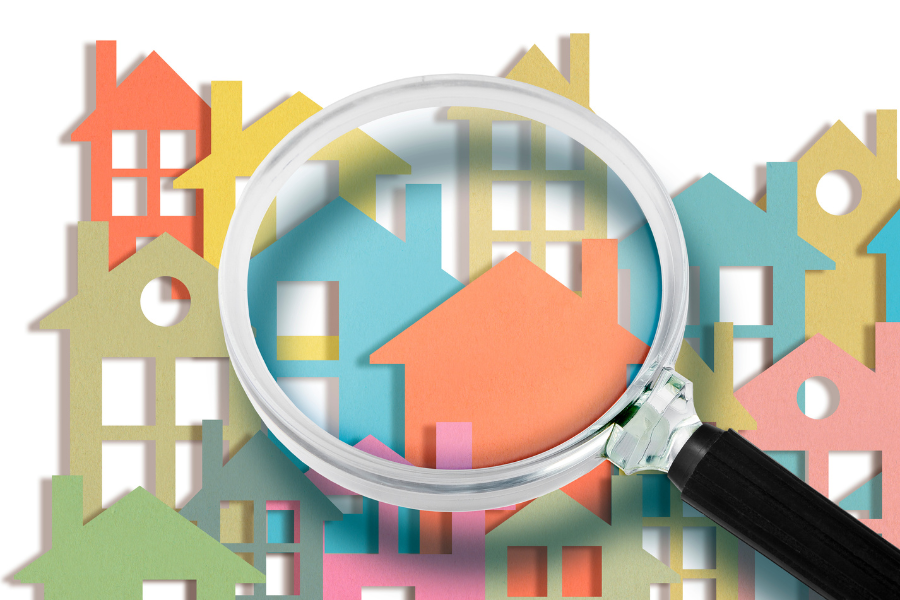
So now that you have decided what type of real estate investing you would like to do and what type of funding you think you’ll need, how should you actually find a property? There are many different strategies that can be used to find your first property!
Here are some ways to find investment properties:
- Real Estate Agent – Perhaps one of the easiest ways to find a property is to use a real estate agent. They have access to a bunch of resources a regular investor can’t access, and they can help negotiate for you. The most important piece of advice I have for you is to get an investor friendly realtor. Ours has been essential to our success. He owns his own rentals, so he knows the ins and outs and whether a deal is good or not. Having the right agent can be a game changer to finding your first investment property, and for having it be a good deal.
- Online Listings – We’re not talking Zillow here, an agent could get you those listings. These are the listings you might find “off market.” Some people list their properties on Craigslist or other similar sites. I am in a Facebook group where sellers can list their properties in an attempt to sell before they go on the market. Finding a property this way can sometimes get you a great deal, but be careful and make sure you still do your due diligence as they are not all winners.
- Networking – Sometimes you can find properties just from networking. Let anyone and everyone know that you are interested in buying a rental property, and you might just have a friend of a friend who is selling, or a family member’s coworker who wants to get rid of a property. You never know who is out there, and you never know what type of deal you might find just from talking to others. You may also find deals from other investors at real estate meetups, or even just talking about it with people you meet. Put the word out there and get networking!
- Driving for Dollars – With this method, you drive around in an area you are interested in investing in and see if there are any dilapidated properties around. Perhaps the lawn hasn’t been cared for, or the house doesn’t look that great. You write down the address, search for the seller, and offer to buy their properties. This can be a great way to get a house for a discounted price. Oftentimes there is a reason why the property isn’t in the best condition, and your reaching out might just trigger the owner to sell. Again, make sure you do your due diligence to make sure you don’t overpay for a distressed property.
- Auction – Auctions can be a great, but risky way to get a rental property at a discounted price. Most homes on auction sell under their value, and once you understand the ins and outs of how auctions operate, they are a great way to get a deal. Just make sure you understand how the auction works, what the terms are, and what comes with the property. Will you owe the back taxes? Are there fees due at the time of purchase? These are all questions you should be researching and asking before you buy a house on auction.
- Wholesaler – We mentioned in the above section what a wholesaler is. Most wholesalers have a list of buyers that they put their properties out to once they have them under contract. It’s very easy to get on that list, but be warned. Not every wholesaler deal is a great deal, and some wholesalers have preferred buyers that they offer their best properties to first. Just be sure to do thorough research on the properties they send your way before signing any contracts.
So what exactly should you be looking for when buying a rental property? There are many things to consider when you’re evaluating a property, depending on your goals. Make sure you investigate the condition, the location and the growth potential prior to making any deals. Also be sure to conduct any property inspections and due diligence on the property to help mitigate risks.
Managing Your Investment

It’s time! You’ve bought your first rental property, and now what? You have to manage it, of course! While you may hire a rental property manager or company to take care of the problems for you, it is still important for you to understand how to manage a property in case anything unexpected comes up.
My business partner and I are managing our own properties for now so we can use all of the money to buy more properties and grow the business. It’s important to have a property management plan for when any issues arise.
A landlord is responsible for all things property related, including:
- Finding and vetting tenants
- Lease agreements
- Maintenance
- Repairs
- Responding to tenants
- Rental property upkeep
- And so much more
By having a property management plan in place, you can make the above list so much easier to manage when any issues arise. When looking for tenants, have a list of minimum requirements, and then use them to vet tenants. Just be sure that your requirements meet the legal standard.
Create a lease agreement and then use it for each of your properties so you don’t have to keep coming up with a new one. We made ours editable so we could easily change things, such as if there are appliances available or not.
Create a system for tenants to report any maintenance that may be needed. In addition to this, outline maintenance responsibilities in the lease so there are no questions about who needs to change a lightbulb. Most of our major maintenance concerns are addressed in the lease, along with which party needs to address the problem, and we have an online system called RentRedi where tenants pay their rent, and also submit maintenance requests. We also gave them a phone number for emergencies.
Address Repairs and Maintenance
It is also up to the landlord to address any needed repairs. It’s best to keep an eye on the property and inspect it at minimum once a year for any minor or major repairs. You should have a checklist of things that may need to be fixed and be proactive about it to prevent major damage.
Rental properties also need to be kept up. Things such as lawn care and snow removal fall on the landlord unless you have an agreement with the tenants (such as we have) that they will maintain the property.
Being a good landlord is about more than just keeping the property nice, it’s also about how you respond to and interact with the tenants. Their problems may seem like nuisances, but remember, this is where they are living. To maintain a good relationship with your tenants, it’s best to respond quickly, address their issues, and listen to what they have to say. A happy tenant is more likely to be a good tenant who will pay their rent on time, communicate with you when needed, and keep their apartment in good condition.
What else could you ask for?
Understanding Tax Implications

Let’s kick off this section with the disclaimer that I am in no way, shape or form, a tax professional. All of the information in the section is based on our research and opinions. Please, please, please, consult a tax professional if you are thinking of implementing any of these strategies.
Due to the fact that I am not a professional, we are not going to dive deep into any of these topics. I am just going to do a brief overview of some tax implications that may affect you if you invest in real estate.
There are several benefits to investing in real estate. Some of these include:
- Depreciation – There is a tax benefit where you can claim the depreciation of a property over many years of ownership, regardless of the fact that a property may appreciate in value
- Mortgage interest deduction – Another tax benefit is the ability to deduct the mortgage interest from your taxes
- Business expenses – all of those expenses you pay to operate your rental business can be deducted as well
You should consult with a CPA or tax professional that specializes in real estate so you can understand and implement strategies that help minimize tax liabilities. In addition to the above common deductions, there are many other ways you can reduce your tax liability, including being a real estate professional if you spend a certain amount of hours working the business, or using certain tax strategies to reduce capital gains taxes.
It’s important to meet with a professional as soon as you can so they can assist you with creating a personalized plan based on your investing situation. Don’t wait until tax time to start, get ahead of the game and reap the benefits during tax season.
Monitoring and Optimizing Your Investment

As you invest in real estate as a beginner, it is important to monitor and optimize your investments. You need to keep track of all of your investments to make sure they are still bringing in income and not losing you money.
As time goes on, regularly maintain and monitor your investments to help optimize them for maximum income. Look for ways you can improve your properties to get maximum value. What improvements can you make to increase your rental income or property value? What procedures can you put in place to help reduce your expenses?
These are all questions you should be asking regularly for each property. What improvements can you make to get the best return on your investment?
Here are some steps to keep in mind:
- Establish a performance metric – determine what you are looking to gain from each property. Are you looking for rental cash flow, or increased property value? Use these as a base metric for your analysis.
- Track your property’s performance – Each year track the performance of your property to ensure it is still within your desired metrics
- Maximize your ROI (Return on Investment) – look for different ways to increase your income. Small changes can sometimes add up to big returns, so you should always be looking for ways to increase your property’s values.
- Reduce Expenses – look for ways to reduce your expenses which will also increase your cash flow. Can you automate any parts of the process, or use apps to monitor certain metrics? Any items you can use to reduce expenses will ultimately lead to a lower costs and increase your income your value
- Evaluate market conditions – you should regularly be monitoring the market to keep an eye on any changes that could affect your rental property investments. Are there new developments in the neighborhood, or are people starting to move away from the area? These factors can all affect your overall income, as housing and rental rates fluctuate based on market factors.
- Adjust your strategies – based on the above factors, you should regularly adjust your strategy to make sure you are optimizing your real estate investments. Consider options such as selling properties that no longer fit your investment strategy, or starting to flip properties in another market if yours becomes saturated
You should constantly be adjusting your strategy to meet your real estate investing goals. Constant monitoring and adjustments will help you optimize your income and decrease your expenses to give you the best investments possible. Be sure to understand your market, do your research, and get that money flowing in.
Conclusion

And that’s it! Now you are a real estate investor. Remember, just like anything else, real estate is a lot of hard work. With some time and effort you can build systems to make it more passive, freeing yourself up for more opportunities, but as a beginner you will need to put in constant research and effort to build your business.
Leverage your resources and seek guidance if needed to help you optimize your strategies. Stay committed to your goals. Real estate is a long-term investment and requires time and effort to be successful. Do your research, understand your strategy, and get investing today!


